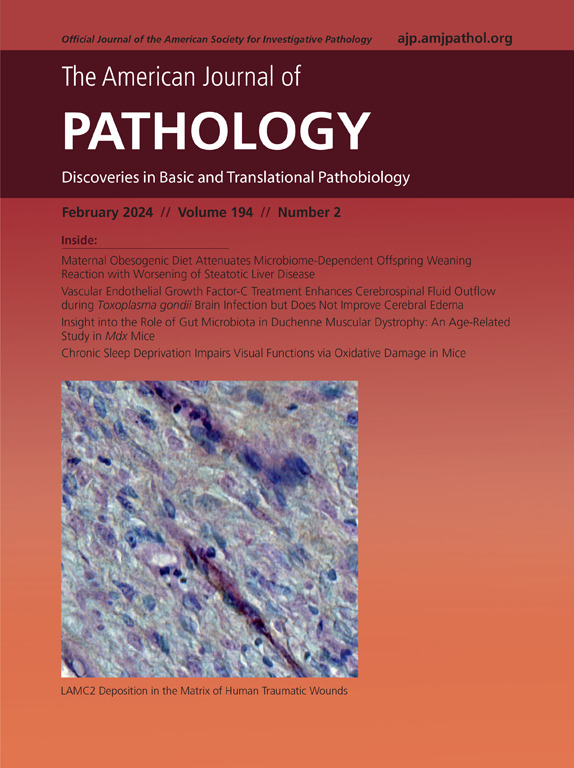Retraction Notice to “Aberrant CD8+ T-Cell Responses and Memory Differentiation upon Viral Infection of an Ataxia-Telangiectasia Mouse Model Driven by Hyper-Activated Akt and mTORC1 Signaling” [Am J Pathol 178 (2011) 2740–2751]
IF 3.6
2区 医学
Q1 PATHOLOGY
引用次数: 0
“超激活Akt和mTORC1信号驱动的异常CD8+ t细胞反应和记忆分化对ataxi -毛细血管扩张小鼠模型的影响”[J] .中华病理学杂志,2011(11):2740-2751。
本文章由计算机程序翻译,如有差异,请以英文原文为准。
求助全文
约1分钟内获得全文
求助全文
来源期刊
CiteScore
11.40
自引率
0.00%
发文量
178
审稿时长
30 days
期刊介绍:
The American Journal of Pathology, official journal of the American Society for Investigative Pathology, published by Elsevier, Inc., seeks high-quality original research reports, reviews, and commentaries related to the molecular and cellular basis of disease. The editors will consider basic, translational, and clinical investigations that directly address mechanisms of pathogenesis or provide a foundation for future mechanistic inquiries. Examples of such foundational investigations include data mining, identification of biomarkers, molecular pathology, and discovery research. Foundational studies that incorporate deep learning and artificial intelligence are also welcome. High priority is given to studies of human disease and relevant experimental models using molecular, cellular, and organismal approaches.

 求助内容:
求助内容: 应助结果提醒方式:
应助结果提醒方式:


